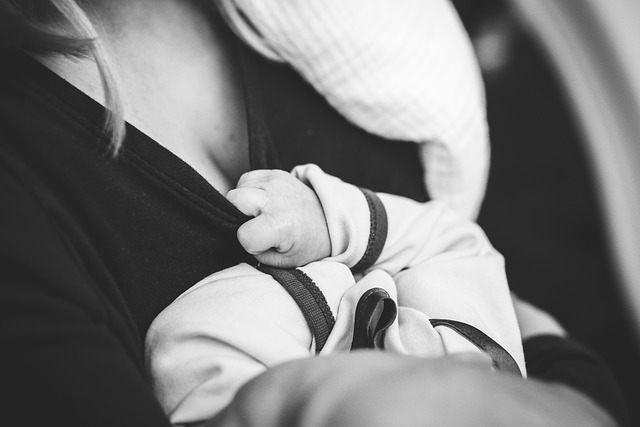Giving birth to a baby is one of the most beautiful experiences in the life of every woman. Holding the newly born in your arms is a feeling that can’t be put down in words. However, when you are breastfeeding your baby, you may feel some pain when your baby bites. But you don’t need to take a lot of tension as this is just a passing phase. Luckily, you can teach babies to stop biting. Here, we are going to share with you some useful ways to get relief from this issue.
Why do babies bite?
To learn how to stop babies from biting, let us learn why babies do it at the first place. Properly nursing your baby can help them to stop doing it.
So, here are a few reasons why babies bite during breastfeeding:
- This problem is generally seen when babies are six months old. It is when they are in the teething stage. As teething hurts, babies chew things to get relief from pain. This is the reason, why would start biting your nipples during breastfeeding. Giving them a teething toy or any breast milk popsicle. It will surely soothe their swollen gums and they will be less likely to bite them.
- Another reason why your baby bite at the time of nursing is because he has got bored. This is mostly seen at the end of the nursing session. That is the time when he is full and gets bored. One of the things that can help in preventing this situation is to breastfeed your baby in a quiet room that is devoid of any distraction, and stimulation.
- The third reason why your baby does it because he wants to grab your attention. This is common in older babies, or playful babies who demands attention. In such a scenario, what you can do is to maintain eye contact and engagement with the baby at the time of nursing him. In order to actively nurse, the baby’s tongue must be placed over the lower teeth and gums to draw milk out of the breast. Keeping an attentive eye on your baby during nursing, as well as removing him as he finishes, will help in the prevention of bite.
- Last reason is when your baby needs more milk. Baby starts to bite when he doesn’t get the milk in adequate amounts. In such a case, he pulls back and bite to eject milk from the breast. There can be various reasons for low milk supply: pregnancy during breastfeeding, hormone induced birth control measures, supplements, and medications, and resuming menses.
Ways to stop your baby to bite you during breastfeeding
If the gums, and lips of the baby are an inch behind the nipple, then his tongue will prevent the bites. As it is present between the breast, and the lower teeth, it will stop any hurt Continue nursing your baby till he gets teeth.
Stay calm and patient to teach your baby to stop biting at the time of nursing. What you need is to is to gently remove your baby from the breast. You can do it without saying anything, or by saying “no biting.”
In addition to it, quickly stop nursing your baby. Remove him for some seconds or even minutes. If he wishes to keep nursing, he will get upset, and you need to feed him a little more. On the other hand, if he is full, and not interested in nursing, then he will start to play with toys. End the feeding session each time the biting happens. Your baby will get the hint that biting reduces the mom’s desire to nurse.
If you find that you are removing the baby, but he is not releasing, then don’t pull back with pressure as it can hurt your nipples. In such a case, you need to place the finger between gums, and teeth of the baby to pause the suction. This will make it a lot convenient to remove him from your breast.
Another way to do is to pull the baby closer to the breast so that he opens the mouth to breathe air and release the breast.
You need to keep in mind that babies are quite sensitive. Do not yell or scream on your baby as it won’t treat problems, but aggravate them.
Also read: Foods that helps to increase the production of breast milk
Conclusion
It is very normal for babies to bite at the time of breastfeeding. However, it is a temporary phase. By being gentle with your baby, and teaching him in the right way, you can easily stop this occurrence.

